Finding the best phone providers for students in the Netherlands is just one of the many exciting tasks you will face when you embark on your Dutch study journey.
Studying in the Netherlands is a once-in-a-lifetime adventure for many, filled with unique experiences, new-found independence, and great friends.
Of course, amidst all the excitement, there are practical challenges to tackle — like finding ways to save money on your phone bill.
- What are the best Dutch phone plans for students?
- Do I need a Dutch phone plan as a student in the Netherlands?
- How do I get a Dutch phone plan as a student?
- What types of phone plans exist in the Netherlands?
- Do Dutch mobile providers offer student discounts?
- Using a dual eSIM as an international student in the Netherlands
This post might have affiliate links that help us write the articles you love, at no extra cost to you. Read our statement.
What are the best Dutch phone plans for students?
As a student, your priorities for a phone plan often revolve around a few key essentials: fast internet, affordable rates to call your family, and reliable cell reception.
To come up with this list, we ranked Dutch phone plan providers by the following factors:
- Affordability (students are on a budget, after all!),
- Data speed,
- English-language customer service and websites,
- International calling and texting options (to stay in touch with family back home),
- Customer service.
So, what Dutch phone providers best fulfil all these needs? Let’s have a look.👇
LEBARA: best overall

LEBARA is our top pick for a phone plan for students in the Netherlands. It offers ultra-cheap plans tailored to your needs, easy international calling, and English web pages and customer service.
Plans start from just €4 and are cancellable or adjustable monthly. It also operates on the KPN network, giving you top coverage and the best speed. ⚡
Simyo: best for flexibility

Simyo is another favourite with both Dutch and international students, offering customisable SIM-only plans from just €6 per month.
Want to get started with a Dutch provider right away? Then Simyo’s eSIM option might be the perfect choice for you.
Simpel: best for controlling your spending
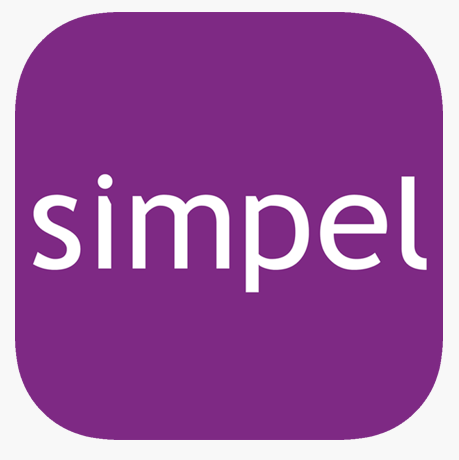
Simpel offers SIM-only bundles starting at €4 per month, perfect for students. You can customise your subscription each month and set a consumption limit to prevent unexpected expenses.
The downside? Subscriptions are typically one or two years long, making them less flexible than Simyo or LEBARA. But if you’re here for an extended period, Simpel is worth considering.
Ben: best for bundle deals

Ben doesn’t do prepaid SIMs, but we’re big fans of their highly customisable SIM-only bundles.
Tailor your subscription with options like unlimited calling, messaging, or data, and enjoy the flexibility to cancel monthly. Plus, if you have an Odido TV or internet subscription, you can snag a special discount.
Budget Mobiel: best for cheap data
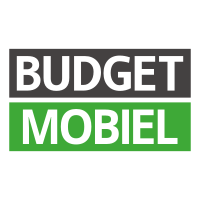
Looking for a budget-friendly SIM-only bundle for your Dutch adventures? Budget Mobiel is the answer.
Starting at just €7 per month, Budget Mobiel offers affordable data packages with bundles ranging from 3 to 15GB — or unlimited to surf the web whenever and wherever.
Youfone: best for reliable customer service
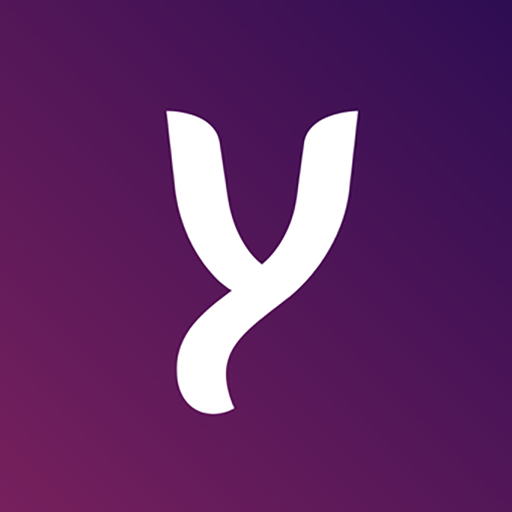
With the option to set a cap on data usage and calling, Youfone is great for students who are balling on a budget (which, let’s be real: aren’t we all?).
They offer reliable SIM-only bundles and attractive prepaid options. Although their website is only available in Dutch, their customer service is top-notch, consistently rated among the best in the country.
Do I need a Dutch phone plan as a student in the Netherlands?
Great question. Whether or not you need a Dutch phone number depends a bit on where you’ve moved to the Netherlands from — EU or non-EU — and how long you’re staying.
Regardless of your country of origin, it’s good to know that having a Dutch phone plan is almost always the most affordable option. Here’s why it’s worthwhile:
As an EU student
While EU students can continue using their home country’s mobile plans without supplementary charges in the Netherlands (thanks to EU roaming), having a Dutch phone number offers several advantages.
Most importantly, it makes the Dutch bureaucracy much easier to bear.
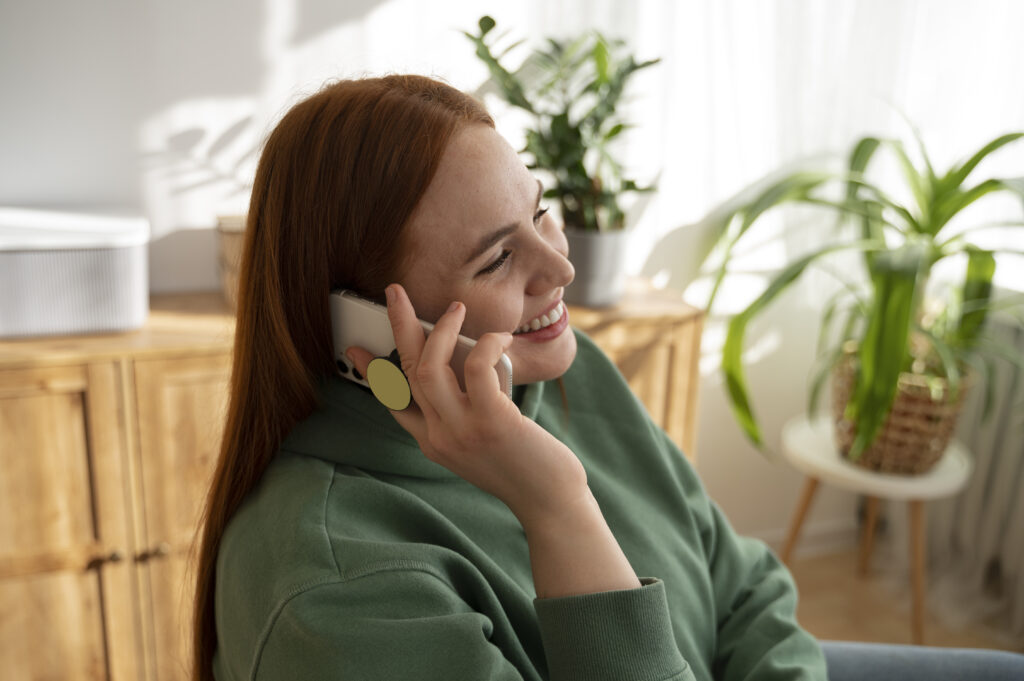
Interaction with Dutch banks, transportation services, and healthcare providers is much simpler when you have a Dutch phone number. Tasks like getting a gym membership or even being called by your pizza delivery driver or GP also often require a Dutch number. (Trust me, I’ve struggled with this A LOT before getting a Dutch number).
That’s why I generally recommend getting that shiny Dutch number — unless you’re only in the Netherlands for one exchange semester.
As a non-EU student
For non-EU students, getting a Dutch phone number is particularly important. Why’s that? Well, simply because using a third-country number in Europe costs a heck of a lot of money.
Not only does a Dutch SIM facilitate communication with local contacts and institutions, but it also enables smoother integration into Dutch society (and lets you use Tikkie!).
READ MORE | Studying in Amsterdam: everything you need to know
A Dutch phone number is often required for various administrative purposes, such as registering with the municipality, opening a bank account, or signing up for essential services like internet and utilities.
Wanna travel around Europe while studying in the Netherlands? A Dutch phone plan allows you to use your data bundle abroad, making it easy to use WhatsApp, maps, and find the best local spots. If you want to call your family abroad, getting a phone plan with international calling options is recommended.

How do I get a Dutch phone plan as a student?
Getting a Dutch phone plan as a student is as easy as riding a bike or enjoying a pannenkoek.
Once you’ve decided what type of plan suits you best and what provider you want to go with, it’s time to gather your documents.
Typically, you’ll need:
- A valid form of identification: This could be your passport, ID card, or residence permit.
- Proof of address: Some providers may require proof of your Dutch address, like a rental agreement or a utility bill.
- A Dutch bank account to pay your bills: Many Dutch institutions or utility providers can only set up direct debits from Dutch bank accounts.
Next, head to the nearest store of your chosen provider or visit their website — and sign up. Once everything’s sorted, you’ll receive your Dutch SIM card either immediately in the store or by mail.
And voilà, you can now make calls, send texts, and stay connected as you explore your new home.

What types of phone plans exist in the Netherlands?
In the Netherlands (as in most countries), there are several phone plans to choose from. It’s important to choose the plan that best suits your needs and budget. Let’s break ’em down:
Prepaid SIMs
Prepaid SIM cards allow you to pay in advance for a set amount of calls, texts, and data.
READ MORE | Unlimited data SIM cards in the Netherlands: the ultimate guide
Prepaid SIMs are great for those with commitment issues, as they allow you to stay in control of your spending and don’t require a long-term contract.
However, rates per minute, text, or data may be higher than those of other plan types.
Phone Subscriptions (abonnementen)
Phone subscriptions include minutes, texts, and data, along with a brand-new smartphone. You pay a monthly fee for both the phone and the usage plan.
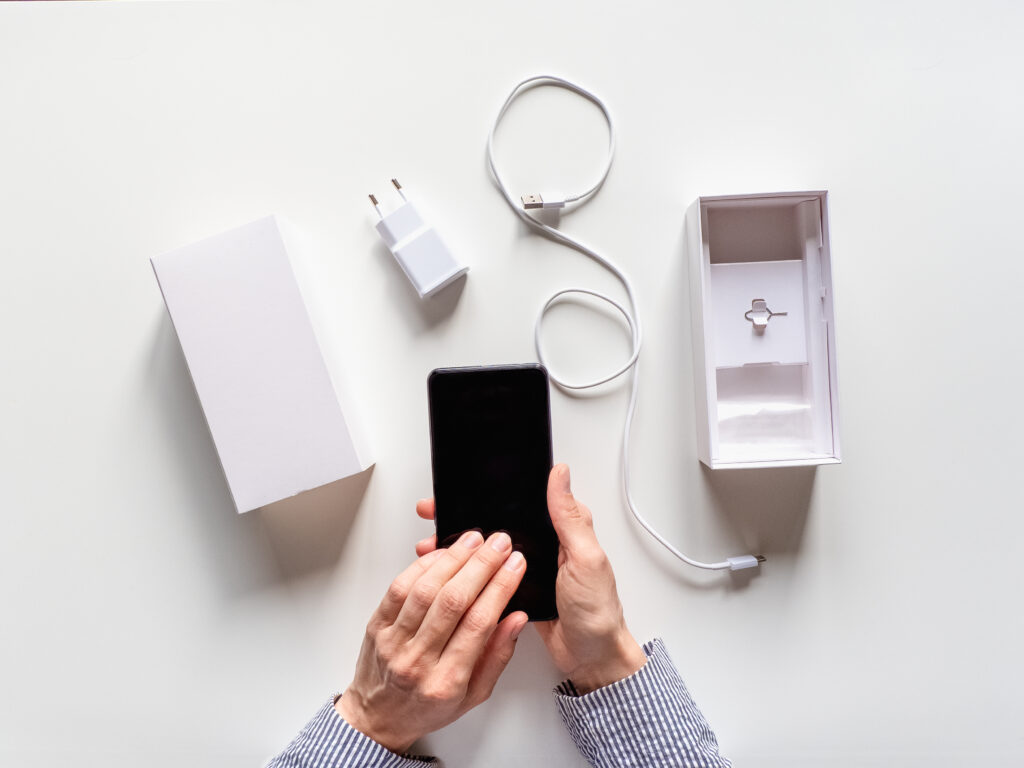
Phone subscriptions typically require a longer contract commitment (e.g., 12 or 24 months) and may involve higher monthly rates compared to SIM-only plans.
SIM-Only Plans
SIM-only plans provide a SIM card and a monthly allowance of minutes, texts, and data without a bundled phone.
SIM-only plans are usually more cost-effective than traditional phone subscriptions because you’re not paying for a new device. They are also often flexible and come with shorter contract periods. Win-win!
Do Dutch mobile providers offer student discounts?
The short answer to this question is no; Dutch phone providers generally don’t offer specific student discount deals.
Why not? Dutch phone plans are already affordable enough — with some starting at less than €5 per month!
Many providers offer affordable options, some better suited to student life than others. So, if you want to find the best deals suited to your needs, you can do some research into Dutch phone providers and explore your different options.
Using a dual eSIM as an international student in the Netherlands
If you know you’ll only be in the Netherlands for a limited time; you might want to keep your phone number for your country of origin. At the same time, you know having a local number is important for bureaucratic reasons.
The solution? Getting a dual eSIM — that’s what I did during my student years. Instead of giving up my number from Luxembourg for a Dutch one, I simply had both!
To do so, I converted my Luxembourgish SIM to an eSIM and got a cheap physical SIM with a Dutch prepaid number. With the newer phones, you can also have two eSIMs at the same time, so it’s easy to have both a Dutch and an international number.
This way, I could keep using my old number when talking to my friends and family, but I also had a Dutch number available for things like making appointments with my GP, using Tikkie, and signing up for a gym.
After moving to the lowlands, it is important to set up a good phone plan for students in the Netherlands.
It’ll not only allow you to stay in touch with the locals and watch Netflix on your commute home, but it’ll also make your integration journey much easier. Success!
Have you found another great phone plan for students in the Netherlands? Share your tips in the comments.
What do I need to get a Dutch SIM?
To get a Dutch SIM, you should typically have:
- Proof of Dutch address: Some providers may require proof of your Dutch address, like a rental agreement or a utility bill.
- A Dutch bank account to pay your bills: Many Dutch institutions of utility providers can only set up direct debits from Dutch bank accounts.
When you go to the store to set up your phone plan, you’ll likely be asked for a valid form of identification to verify your account. This could be your passport, ID card, or residence permit.
What is the most student-friendly mobile provider in the Netherlands?
Our top pick for the best phone provider for students in the Netherlands is LEBARA. They offer a great selection of affordable plans and customisable options for a low price.
If you’d like to use your phone to stay in touch with family and friends from your home country, LEBARA also offers unlimited international calls for just €5.
Last but certainly not least, for us internationals, they have a great English website that makes it easy to sign up and understand what you’re getting into.
Can I get a Dutch phone plan without a Dutch bank account?
This depends on the type of phone plan you’re getting.
Many mobile service providers in the Netherlands prefer to set up automatic payments for your monthly plan directly from a Dutch bank account. Having a Dutch bank account is recommended if you’re going for a SIM-only or a phone subscription.
There are alternative options for prepaid SIMs, as you don’t need to top it up monthly but rather as you go. Some providers might accept alternative payment methods for this top-up, such as credit cards or international bank transfers, although this can vary.
Naturally, this can also differ from provider to provider, so we recommend you inquire directly with your chosen mobile operators in the Netherlands to understand their specific requirements.
